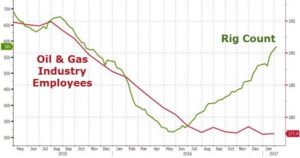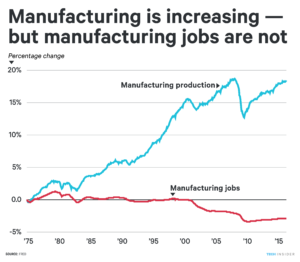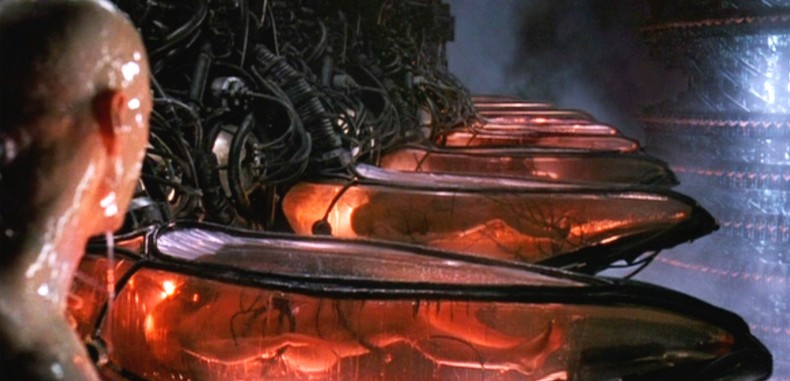If you look at the history of automation, machines created more jobs than they destroyed. And history is going to repeat in this second wave of automation. This is one line of thinking.
For example, when machines took over the job of weavers, the price of clothing dropped so much that demand for clothing increased. It created more jobs in the cotton growing industry.
When technology advanced in transportation, it put the horse and carriage industry out of business. But created many more jobs in travel and tourism.
The argument here is based on the elasticity of human needs. That is, when technology satisfies a current human need, it creates new ones. Which in turn will create new jobs for humans. Automation has led to the net creation of jobs.
In this line of thinking, the focus will be on what are the most lucrative jobs in the future. And the skills needed for those jobs.
What Is Different This Time?
The story may be different this time. Take the recovering oil and gas industry for example. As the rig count increases, jobs in the oil and gas industry did not go back up! Oil rigs are now equipped with more advanced technologies that reduce the need for workers.

But wait a minute! Oil and gas is only one part of the manufacturing industry. Maybe new manufacturing jobs are being created elsewhere.
The interesting thing to note though is that manufacturing output in the USA has been increasing over the past 40 years even as manufacturing jobs decline.

Globalisation and China have been blamed for this. But this is the result of robots taking over.
See the full article here.
This is the other story of automation. It is different this time. In the past, machines took over work that required brute force labour. This time around, the machines are smarter. They can do more. They can learn. Check out this video…
This video is based on the books: The Rise of the Robots and The Second Machine Age.
The scary conclusion: this time around it’s different. There will be a net destruction of jobs.
But the question is this: if there is mass unemployment, who will buy and consume the goods that are produced by the machines? There might be a bust. Check out this Harvard Business Review article for this argument.
Wealthy corporations cannot continue to build wealth without consumers.
And without jobs, there will be no consumers. Unless of course there are income streams that come from a source other than a job.
This is where some people are talking about Universal Basic Income (UBI) – which is different from welfare. Check out this video on what UBI is; how it is different from social welfare; and its limitations.
Bear in mind though, UBI simply covers your cost of living. And if technology can lower our cost of living, then this can go a long way to eradicating poverty. And it will free us from anxiety and the stress of making ends meet on a day to day basis.
But I find it hard to imagine that this way of re-distributing wealth will close the inequality gap – which may just widen because of technology.
So if you have higher aspirations than just surviving, you will want to think about what new and lucrative opportunities will emerge in this second machine age!

